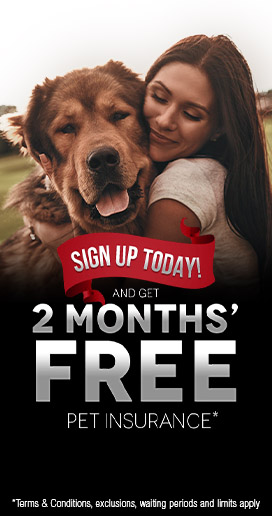
Warning to Pet Owners: Sand Ingestion in Dogs Can Lead to Life-Threatening Complications
[Australia, February 2025] – As temperatures rise and dog owners flock to beaches and sandy parks with their furry companions, Pet Insurance Australia (PIA) urges pet parents to be aware of the dangers of sand ingestion in dogs. What may seem like harmless play or accidental swallowing can quickly become a severe medical emergency.
Nadia Crighton, spokesperson for Pet Insurance Australia, warns that many pet owners are unaware of the risks associated with dogs consuming sand.
“Dogs can ingest sand while fetching balls, digging, or even licking sand-coated toys,” Crighton says. “Unfortunately, this can lead to serious health concerns, including intestinal blockages and a dangerous condition known as sand impaction.”

Case Study: Teddy’s Story
Rebecca de Gier from Melbourne learned firsthand how dangerous sand ingestion can be when her beloved dog, Teddy, suffered a serious health scare during a family road trip to Queensland.
“Teddy was his usual happy and playful self before he got sick,” Rebecca recalls. “We were playing fetch on the beach with a soft toy, and I had no idea that he was accidentally swallowing sand.”
Shortly after returning home, Rebecca noticed that Teddy wasn’t himself. “He seemed uncomfortable, restless, and kept positioning himself in a downward dog stretch. I called my Melbourne vet, and they suggested he might have a sore stomach. I quickly rang local vets, and they directed me to the Animal Emergency Centre on the Gold Coast.”
The veterinary team confirmed via X-ray that Teddy had significant sand impaction, which can cause dangerous blockages, sometimes requiring surgery. His symptoms included restlessness, lethargy, a decreased appetite, and an inability to get comfortable. Fortunately, Teddy was treated with analgesia and IV fluids to help the sand pass naturally. He required an overnight stay, and by the next morning, X-rays showed the sand had moved through his intestines. He was sent home with a week’s worth of probiotics to protect his stomach lining.
“Teddy is doing fantastic now; he is back to his normal self, which is a relief,” Rebecca shares. “The recovery turnaround was quite quick. I am so grateful he survived.”
Rebecca urges fellow pet owners to be mindful when taking their dogs to the beach.
“My advice is don’t play fetch with your dog on the sand! Do your research when you’re going to new places or interstate. There are things you wouldn’t even consider if you’re not usually around beaches! Consider things depending on climate, such as hot pathways, hot sand, ticks and parasites. Always trust your gut instincts too. I was reassured I did the right thing by taking him to the vet. Also, make sure you have Pet insurance. The out-of-pocket payment if I didn’t would have been huge. The sand ingestion was completely accidental, he ingested it when collecting the soft toy, I didn’t even consider this as a potential cause for concern.”
Signs & Symptoms of Sand Impaction
Dog owners should be on high alert for symptoms that may indicate their pet is suffering from sand ingestion. These include:
- Vomiting or dry retching
- Lethargy
- Loss of appetite
- Abdominal pain or swelling
- Straining to defecate or inability to pass stool
- Diarrhoea containing sand particles
If a dog is displaying any of these symptoms after a beach trip, immediate veterinary attention is recommended.
When a dog ingests excessive amounts of sand, it can accumulate and create a dangerous blockage in their digestive system.
“Wet sand becomes dense and heavy, causing the tiny grains to stick together as they move through the intestines,” Crighton warns. “Over time, this buildup can make it challenging for your dog to pass the sand naturally, leading to discomfort and potential medical complications.”
How to Prevent Sand Ingestion
PIA offers pet owners the following tips to help reduce the risk of sand ingestion:
- Use Elevated Bowls & Mats – Providing food and water on a raised surface or a blanket can prevent dogs from consuming sand while eating or drinking.
- Choose the Right Toys – Opt for solid, easy-to-clean toys that don’t accumulate sand and avoid throwing balls that pick up excessive amounts of it.
- Encourage Hydration – Ensuring your pet drinks plenty of fresh water can reduce the likelihood of them licking sand-coated surfaces.
- Supervised Play – Keep an eye on dogs when they dig or play in sandy areas to minimize excessive exposure.
- Rinse Off After Play – Rinsing your pet’s mouth and paws after a beach visit can help remove residual sand.
The Role of Pet Insurance in Emergency Situations
Treatment for sand impaction can be costly, often requiring imaging, IV fluids, and in severe cases, surgery. Having comprehensive pet insurance can help alleviate financial stress in unexpected situations.
“No one expects their fun day at the beach to turn into an emergency vet visit,” Crighton says. “That’s why being prepared and educated on the risks is so important for pet owners.”
For more information on pet health and safety, visit Pet Insurance Australia’s website.
About Pet Insurance Australia:
Pet Insurance Australia is a family-owned and operated business dedicated to providing affordable, high-quality pet insurance to Australian pet owners. With a strong focus on pet health and welfare, PIA works to educate pet parents on the best practices to keep their furry companions safe and healthy.
Featured By:
Nadia Crighton is a renowned and accomplished professional in the fields of Journalism, Public Relations, and Writing, with an extensive career spanning over 25 years, 20 of which have been dedicated to promoting the health and well-being of pets.
Get the latest Pet Insider Tips & News
We offer award-winning* pet insurance policies to protect your furry friend’s health and wellbeing. Get a quote today and give your pets the care they deserve.
Archives
Categories
- Cat Care (64)
- Cats (1)
- Dog Care (124)
- Guides (28)
- Health and Nutrition (200)
- Lifestyle and Activities (219)
- Media Release (24)
- Pet Care (246)
- Rescue Dogs (1)


